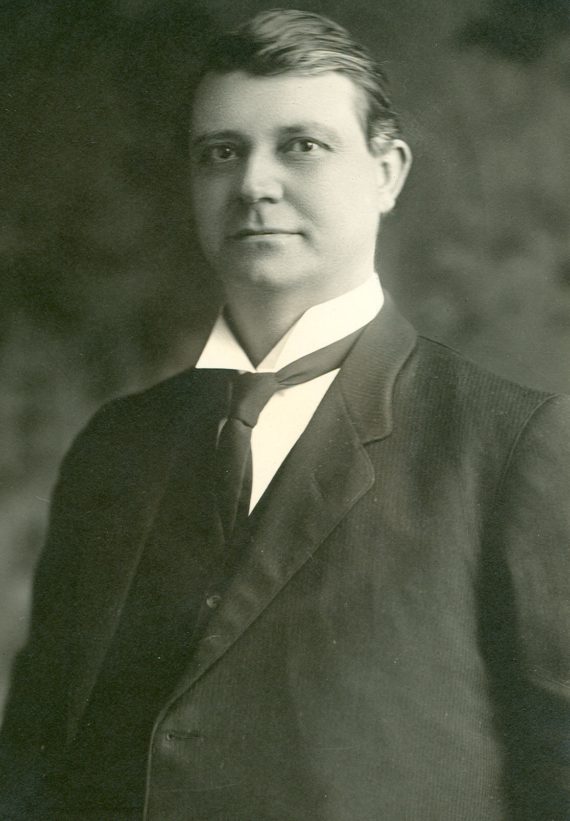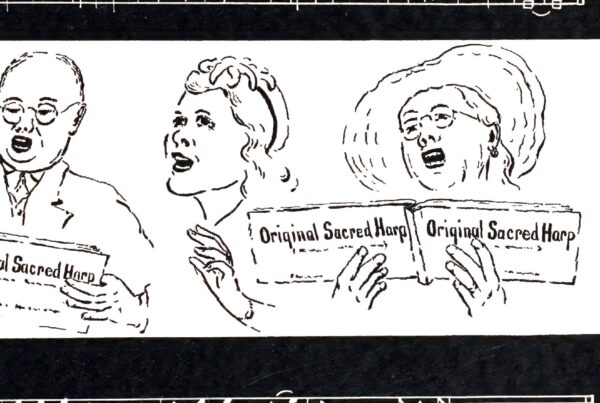Claude Kitchin represented North Carolina in the U.S. House during the early 20th century and served as Speaker of the House during the First World War. Though he was a Democrat, he is remembered for risking his political career to oppose President Woodrow Wilson on questions of U.S. foreign policy: Kitchin consistently opposed Wilson’s attempts to expand America’s role in world affairs. On other issues, Kitchin adopted parts of the Populist and Progressive agenda and often aligned his positons with those of William Jennings Bryan.
Kitchin was born near Scotland Neck in Halifax County, North Carolina on March 24, 1869. He was one of 11 children born to William Hodges Kitchin and Maria F. Arrington. William Kitchin, a Confederate veteran, struggled as a prominent but debt-ridden planter who supported the Farmers’ Alliance and served one term in the U. S. Congress shortly after Reconstruction. Claude’s older brother William also served in the House (1897-1908) and later as governor (1909-1913).
Claude Kitchin graduated from Wake Forest College in 1888. The same year he married Kate Millis and began studying law. In 1890, he was admitted to the North Carolina bar and then practiced law in Scotland Neck. He also served briefly as a bank examiner and president of a local bank. In 1900, at age 31, he ousted two-term black Republican congressman George H. White in a controversial campaign in which Democrats pledged to end Republican rule in part by disenfranchising blacks. Kitchin held the seat, almost without serious challenge, until his death in 1923. Like his father, he defended the agrarian tradition, resisted the pro-industrial vision of Henry Grady’s New South, allied himself with the Bryan wing of the Democratic Party, and favored much of the Populist agenda, especially currency reform and an end to the protective tariff.
Kitchin quickly earned respect in the House and was seen as a member of ability, integrity, sincerity, and self-control. Even his enemies conceded his strength of character, independence of mind, and brilliance as an orator, debater, and parliamentarian, although his fiercest journalistic and political critics considered him a demagogue. He became an expert on finance and opposed the Payne-Aldrich Tariff of 1909, calling the protective tariff “legislative robbery.” Consistent with his Jeffersonian-Republican instincts, he favored a tariff for revenue only and not for what he regarded as the transfer of wealth to corporations. His legislative talents were recognized with an appointment in 1911 to the powerful Ways and Means Committee. After Alabama’s Oscar W. Underwood was elected to the Senate, he became Chairman of the Ways and Means Committee and House Majority Leader in 1915. He remained House Majority Leader until the Republicans took control of Congress in the 1918 mid-term elections.
Though Kitchin had supported Woodrow Wilson for president in 1912 and backed key Progressive reforms, including the Underwood-Simmons Tariff, he was a consistent anti-militarist and opposed major planks of the administration’s preparedness policy, especially the expansion of the army and navy. In 1915, he co-authored an anti-preparedness pamphlet with William Jennings Bryan. He condemned both German submarine warfare and the British blockade as twin violations of American rights. Following the sinking of the Lusitania, he favored a resolution warning American citizens to stay off ships of belligerent nations. Nevertheless, he voted to arm merchant ships in 1917 and crafted much of the legislation that funded preparedness.
Kitchin risked his House leadership and national reputation when he opposed Wilson’s call for war in April 1917. With the resolution already passed by the Senate, and knowing the votes in the House were against him, Kitchin spoke against the war and appealed to American exceptionalism. “I am unwilling,” he told the House, “by my vote to-day for this nation to throw away the only remaining compass to which the world can look for guidance in the paths of right and truth, of justice and humanity, and to leave only force and blood to chart the path for mankind to tread.”
Once war was declared, however, Kitchin supported most of Wilson’s war measures and labored to finance the war through a combination of corporate, income, and inheritances taxes while avoiding loans and the burdens they imposed on future generations. Along with many in Congress, he denounced Wilson’s “selective service” program for conscription, preferring what he saw as a more honorable volunteer army. Exhausted by his wartime work in the House, Kitchin suffered a stroke on April 9, 1920. Despite persistent bad health after his stroke, his constituents continued to reelect him. After a bout with pneumonia, he died in Wilson, NC, on May 31, 1923, at the age of 54. He is buried in the Baptist Cemetery, Scotland Neck.
Sources
Alex M. Arnett, Claude Kitchin and the Wilson War Policies (Boston, 1937); Claude Kitchin: Memorial Addresses Delivered in the House of Representatives (Washington, 1925); Congressional Record, 65th Congress, 1st session (April 5, 1917), 332-33 (Washington, 1917); H. Larry Ingle, “Kitchin, Claude,” American National Biography (New York, 2000); H. Larry Ingle, “The Dangers of Reaction: Repeal of the Revenue Act of 1918,” North Carolina Historical Review (January 1967) 44, 72-88; H. Larry Ingle, “Pilgrimage to Reform: A Life of Claude Kitchin” (Ph.D. diss., University of Wisconsin, Madison, 1967); “Kitchin, Claude,” Dictionary of American Biography, Vol. X: 439-40 (New York, 1977); New York Times, 1 June 1923; Outlook, 13 June 1923; Time, 11 June 1923.







